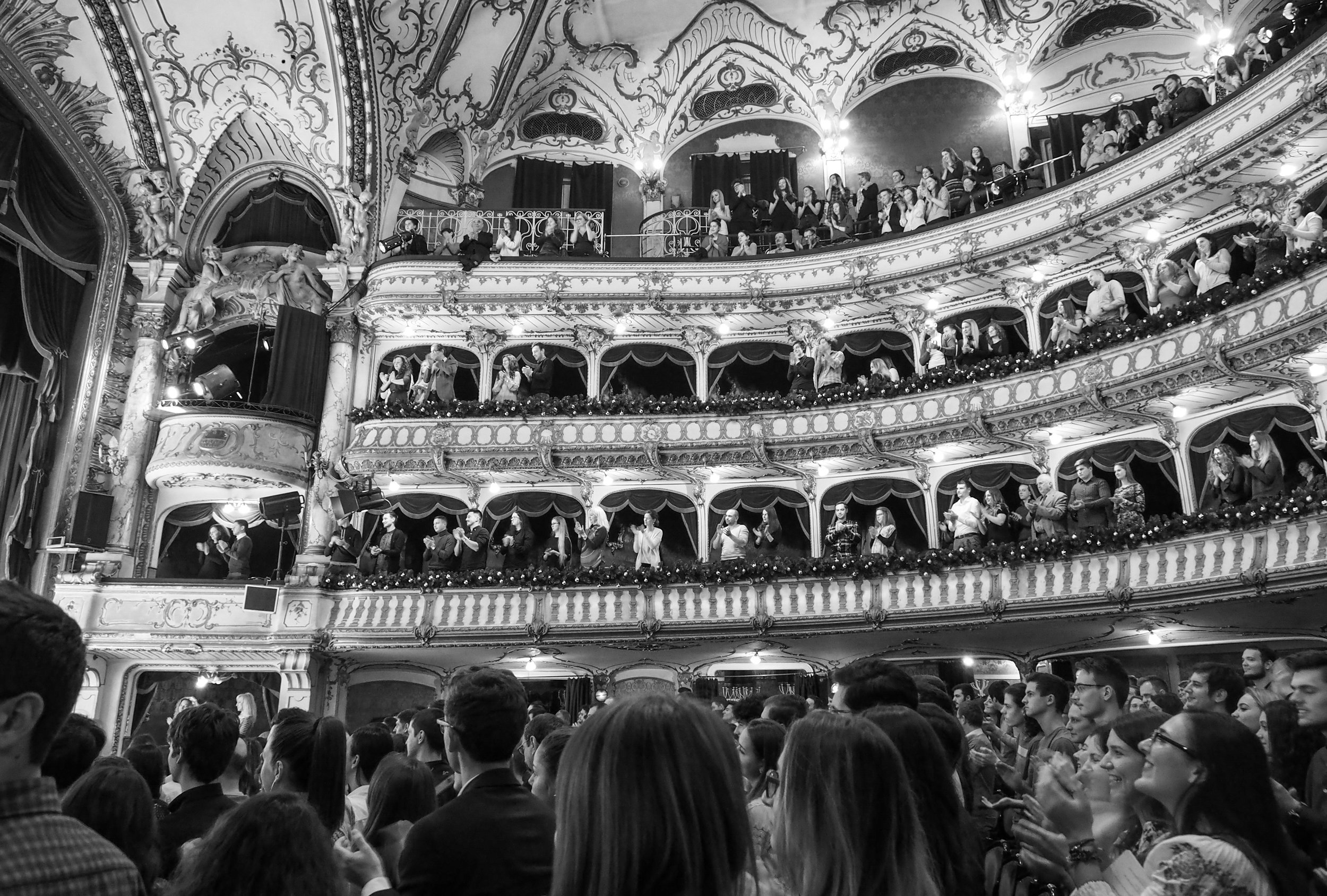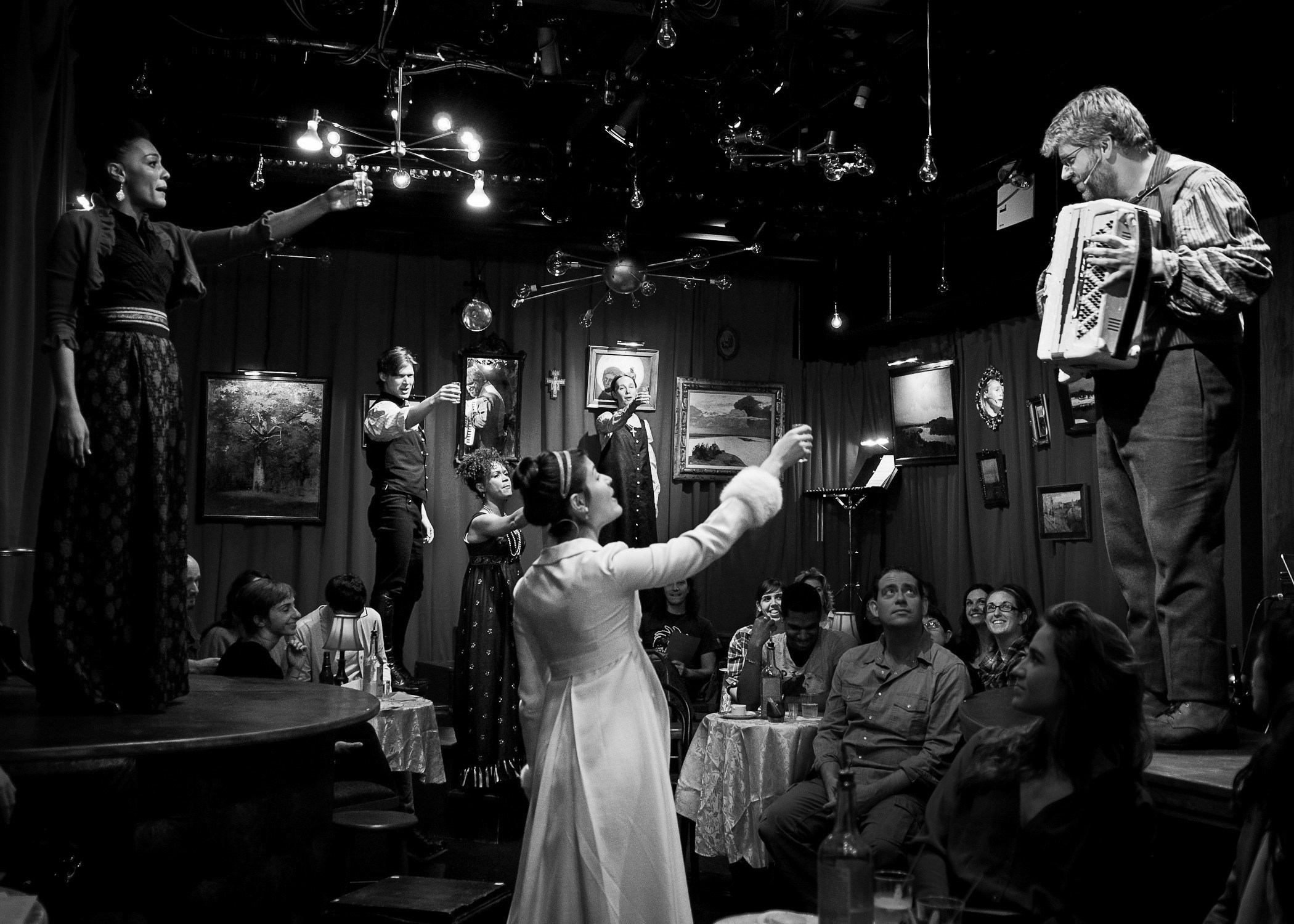To Be An Audience Member

Here at Carnegie Mellon, we have a wonderful festival of student-created and produced work known as Playground. All School of Drama classes are cancelled, and at the beginning of the week the building is a frenzy of rehearsals and designing and building and discussion. Then, at the end of the week, the performances and installation works go up.
The first performance started at 10:15 am on Friday. The last performance ended at 11:30 pm on Saturday. The festival went on for well over twelve hours both days - with pauses between performances to get in line for the next piece and several meal breaks. Essentially, about nine hours each day were spent in performance, not including the performance aspects of several installation works.
I saw almost everything. And by the end, I sort of regretted it. But I also sort of didn't.
On the first half of Friday, I was having a great time. I was spending time with friends, getting to know people better, and reconnecting with past classmates whose schedules hadn't lined up with mine for a while. I even drank a lavender latte before the first piece began! I told everyone how wonderful Playground energy was.
But as the day continued, I found myself getting increasingly tired. Around 10 pm, I snapped. Suddenly I was exhausted and hyperemotional - but I didn’t stop. I had to make it through.
And I did. I saw all but one piece on Friday. The only reason I missed that piece was because the line was too long and I was unable to get into the performance space.
I returned home, telling myself the same few words again and again: just go to sleep. Just go to sleep. I vowed to myself to go home immediately if I felt that way on Saturday - especially because I was performing in an emotionally draining piece.
I’m glad to say, I did much better on Saturday, skipping several performances to decompress and get a break. But it was only after pushing myself to the edge that I drew myself back.
If I learned anything, I learned that being an audience member can be exhausting. It's my theory that it has a lot to do with empathy - which in turn is a huge part of the reason why theatre works. There's no doubt that the work of the performers and crew is unbelievably tiring and difficult in a way that a typical audience will not experience during any given piece.
Yet there is a sense that watching them give all their energy makes the audience give much of its own. Ever heard the phrase "I feel tired after seeing that"? You watch the performers and crew, your mirror neurons fire, and you get a sense of the tiredness they might be experiencing.
Not to say theatre pieces can't be incredibly invigorating, of course. But high energy means that high amounts of energy are being expended. Many of the pieces in Playground were this way: bombastic cabarets, bold comedies, school-wide dance parties and rap concerts. You dance, you sing, you laugh, you clap.
But there's also no shortage of heavier topics. Some shows bring you to tears over strained family relationships or reminders of the grieving process. Those kinds of pieces tend to be draining - they can inspire, but also require a great deal of attention and emotional work.
Both of these types of pieces can be phenomenal. Both of these types can also take so much energy out of an audience member. Now imagine going between these kinds of pieces almost nonstop, still wiping away your tears from an emotional musical while sitting down for a play where you laugh non-stop.
That's just the emotional aspect. To be an active audience member, engaged and reacting and focused, takes a lot out of a person. It's not just laughing or crying, but being keyed in enough to a piece to laugh or cry at what's happening. Us human beings don't have the greatest attention spans, but with focused engagement we can give ourselves over to a piece of art.
That is always my goal as an audience member: to be as present and aware as possible. I feel that, for all of the work that goes into any production, and for me to absorb and learn the most, I should be leaning in and letting myself attach fully to what's on stage in front of me.
Add time on top of that, and you've got a recipe for exhaustion. Doing anything for a long time tends to be tiring. But having your empathy act up for hours on end while you press yourself to keep watching, keep laughing, keep cheering, keep crying, keep gasping, keep clapping...no wonder I was so exhausted at the end of Friday. Empathy, engagement, duration. And I'm sure the fact I'm a massive introvert didn't help either.
I think we can all be a little more conscious about what it takes to be an audience member. Knowing how much energy it can take allows us to find balance between self-care and outward attention when we are spectating, and appreciating those who listen and watch when we are on stage or behind the scenes.
After all, there's no theatre without an audience.
(Photo by Vlah Dumitru via Unsplash)




